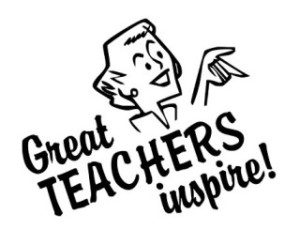I’ve just finished “teaching” my second online photography workshop, Photo By Design. Yes, I’ve facilitated groups before and have been told that I’m a good facilitator, but I’ve never before thought of myself as a teacher. After finishing this recent workshop, I do believe that my role is more as a facilitator than a teacher. But, maybe that’s what a teacher really is.
Teachers vs Facilitators
To “teach” implies instruction, imparting knowledge, a transfer of information.
To “facilitate” means to make something easier, or to help bring about something that is already there. And isn’t that what a good teacher really does?
The Connection Economy
Last week, Seth Godin came out with his free manifesto on the future of education, in which he asks “What is school for?” He sees the current educational system as the product of an industrial economy. It answers the need for educated, compliant workers. The industrial economy, however, is disappearing before our eyes. What we have now and will well into the future is an economy that is about connection.
“An economy that’s stuck needs more inventors, scientists, explorers, and artists because these are the people who open doors for others. The new economy will offer fewer new long-lasting institutions. They will be replaced with micro-organizations, with individual leadership, or with the leveraged work of a small, innovative team.”
Where Teachers Become Facilitators
I especially liked his take on teachers in this new economy. His teachers are facilitators. In an age where information and facts are easily accessible, we need teachers who will help students love learning, to lead, to critically discern the wheat from the chaff, and to follow their dreams. Sounds like Parker Palmer’s communities of truth.
“What great teachers have in common is the ability to transfer emotions, not just facts.”
Think about it. When asked to name a favorite or influential teacher, most often we remember someone who truly cared about us and who recognized our dreams and our potential.
Discovering our Needs and Dreams
Gwen Bell has been sharing her experiences of meeting needs in her daily letter. She said something recently that was an aha moment for me, especially related to teachers.
“A sustainable business model is creating something to help other people meet their needs.”
In other words, a teacher, coach, mentor, facilitator, spouse, friend, parent, etc. cannot meet another person’s needs. They can only help others to see and meet their own needs. A good teacher sees a student’s needs and helps empower them to fulfill those needs themselves.
One of the participants in my Photo By Design class helped me to see this and allowed me to see myself as more of a facilitator than teacher. She said this about the Photo By Design workshop.
“It has given more voice to my photography. as i’ve always felt, photography allows me to communicate with the world in a way that i’m not able to otherwise. but I didn’t always have the words for WHY I was shooting an image the way I was or WHY I am drawn to certain imagery; WHAT I want to shoot, HOW I want to shoot it. Even the term “contemplative photography” was exciting for me to learn as it gave a name to what I think I’ve been doing for a long time without realizing it. You’ve helped me become a more confident photographer in shooting and in speaking about my work.” ~ Rachel, [en]framed photography
A teacher helps a student to discover themselves, their needs, their dreams. I encourage you to download Seth Godin’s free manifesto, Stop Stealing Dreams. And, please let me know what you think will be the role of teachers in the connection economy.
Image Credit: Retro Great Teachers Inspire Greeting Cards by teachertees

this is a beautiful and significant piece. you are absolutely a facilitator and a leader and you took me to where i wanted and needed to go in a most supportive, inspiring and empowering way. i think learning in a “workshop” environment that you created is also empowering in that it wasn’t set up for right vs. wrong, but to appreciate a variety of view-points (literally and figuratively as it was a photography workshop after all.) i think an effective facilitator also uses a variety of ways/media to impart information so that different types of intelligences have the best chance of “getting it” — this is one aspect of “traditional” education that i think needs to change.